Movies have always captured the mind of the general public. From epics like"Ben Hur" in 1959 to family flicks like 1939's "The Wonderful Wizard of Us," so many movies have held us captivated for so many decades. With that in mind, many movie companies began to capitalize on this in recent years, with many famous, older movies receiving sequels to continue their story, prequels to introduce us to the story behind the story, and spin-offs and franchises to tell us other stories in the same world.
As we've seen with cinematic universes like "Marvel" and "X-Men," these films can be some of the best performing movies ever, whereas we also see through things like the recent Star Wars spin-off "Solo: A Star Wars Story" and Universal's "Dark Universe," meaning a modern version of a classic isn't always smooth sailing. With all of that said, here is my personal list, in no particular order, of classic films that deserve a sequel, spin-off, prequel, remake/reboot, or whatever you (or me, since I'm the one writing) wants!
1. "The Maltese Falcon" (1941)
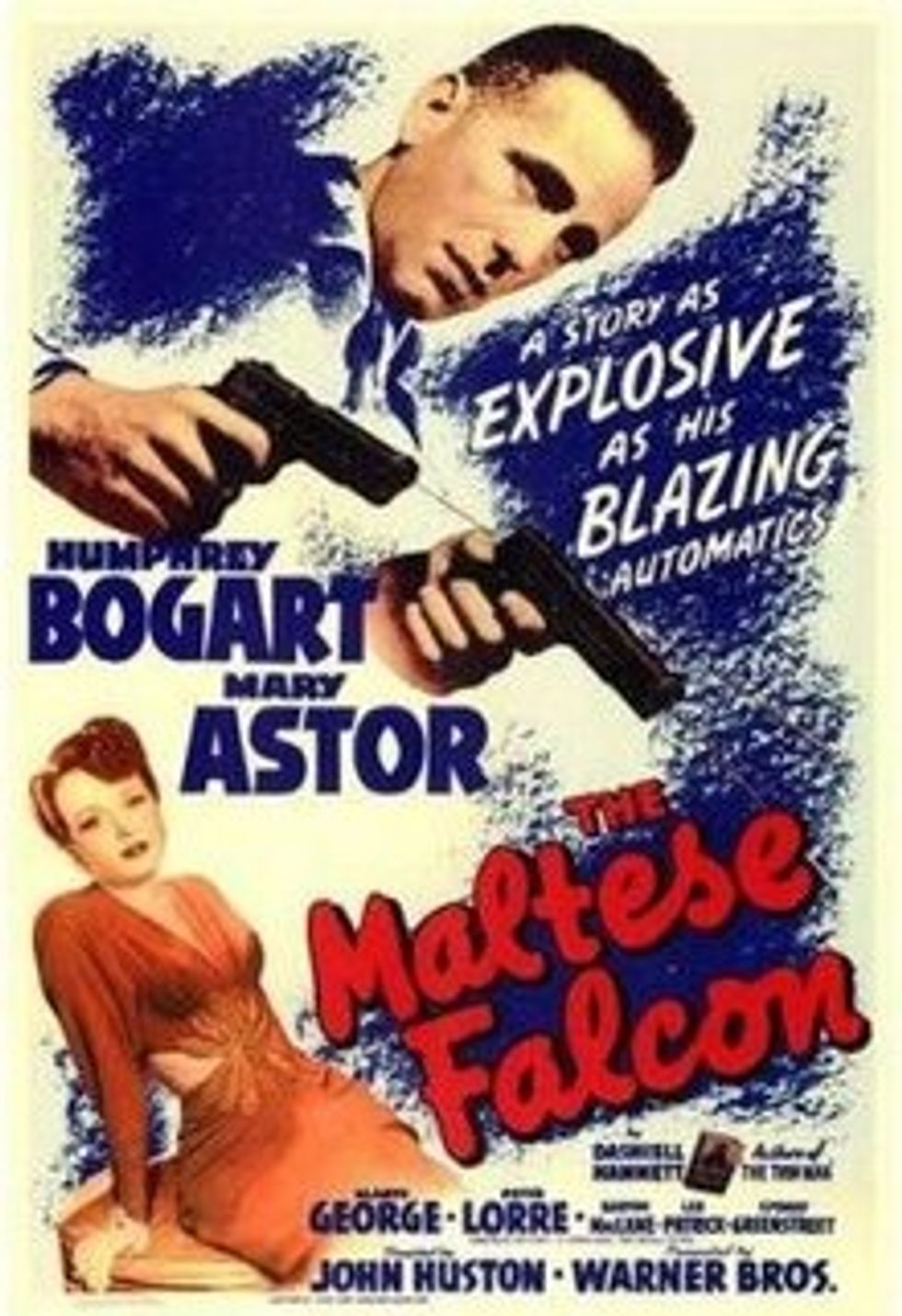
One of the foremost pictures from the film noir genre, "The Maltese Falcon" features leading man Humphrey Bogart as San Francisco-based Private Eye Sam Spade, who, through a series of unfortunate events, finds himself tangled up in an international conspiracy to find the titular Maltese Falcon, a gift to Spanish Conquistadors that was long ago lost but has recently resurfaced. Now, "The Maltese Falcon" actually has already received a sequel in 1975's "The Black Bird", a comedy based in the same world starring George Segal as Sam Spade Jr. Whereas the original is a bona fide classic and one of the few films to receive a 100% on Rotten Tomatoes, the sequel, with only a 25% score, left much to ,.
However, I feel that this story could be continued in a sequel, set in the near-modern day. This is a project I've actually thought long and hard about since "The Maltese Falcon" is one of my favorite classic films, so this opinion may be a little biased, but I do believe that this story could serve as one of the best to continue on all of these years later.
2. "The 39 Steps" (1935)
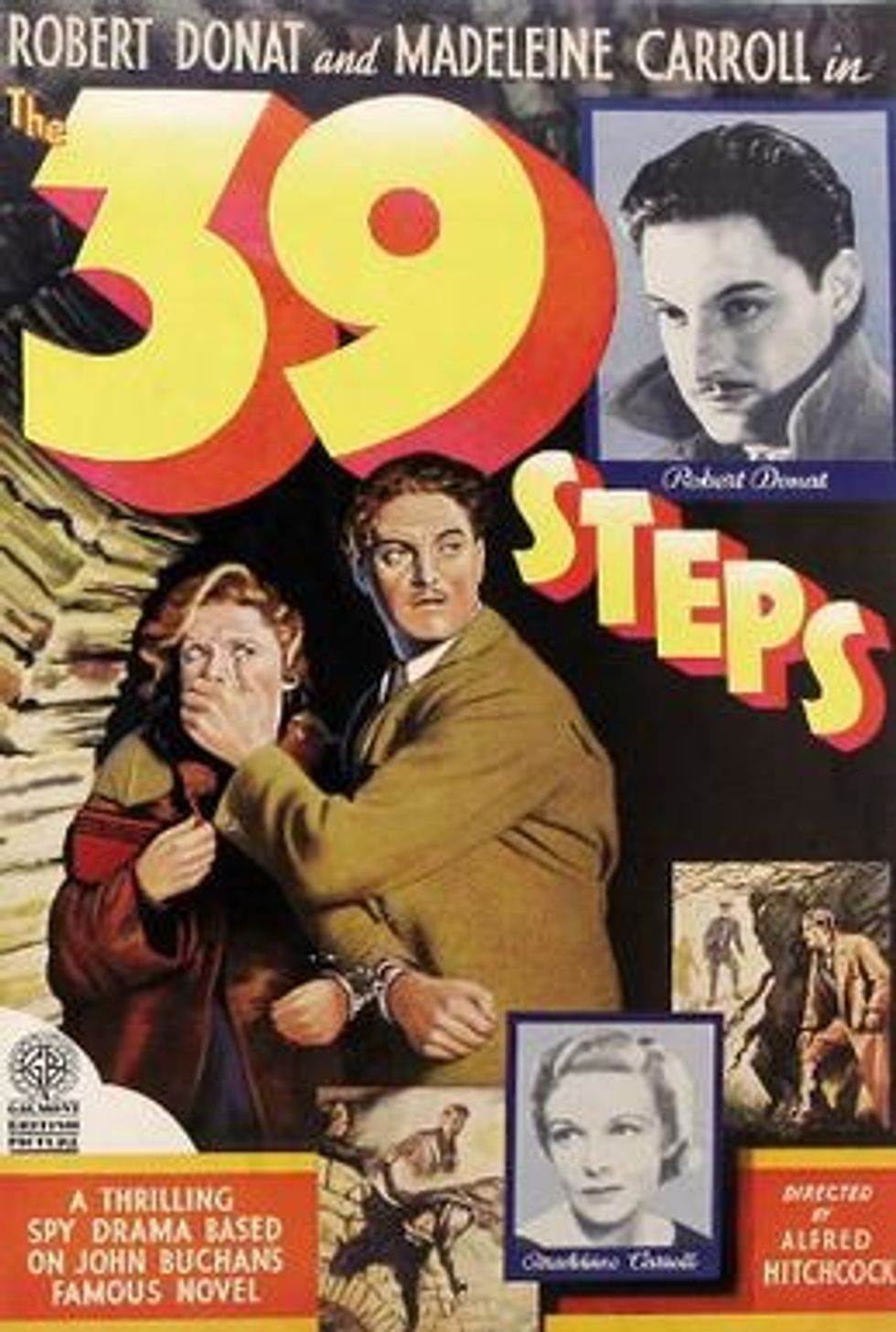
This classic of the same film noir genre as the previous entry, "The 39 Steps", based loosely on the 1915 novel of the same name, was one of the earliest films to be directed by the King of Suspense himself, Alfred Hitchcock. The film is about a man who finds himself tangled up in a spy organization, the titular 39 Steps, and their attempts to steal intelligence from the UK during World War I. While this movie may not be one of the most famous, it was listed as the fourth-best British film of the 20th Century by the BBC in 1999 and the 13th greatest British film all-time by TimeOut London in 2007.
While not the most favorable story for a sequel, and certainly not for a sequel or spin-off, a remake of this early Hitchcock work may just be the treatment it deserves. A heart-pounding spy thriller that also doubles as an early 20th Century period film would not only bring in the crowds but also the accolades, as the Academy Awards has demonstrated its soft spot for historical pictures.
3. "Back to the Future" (1985)
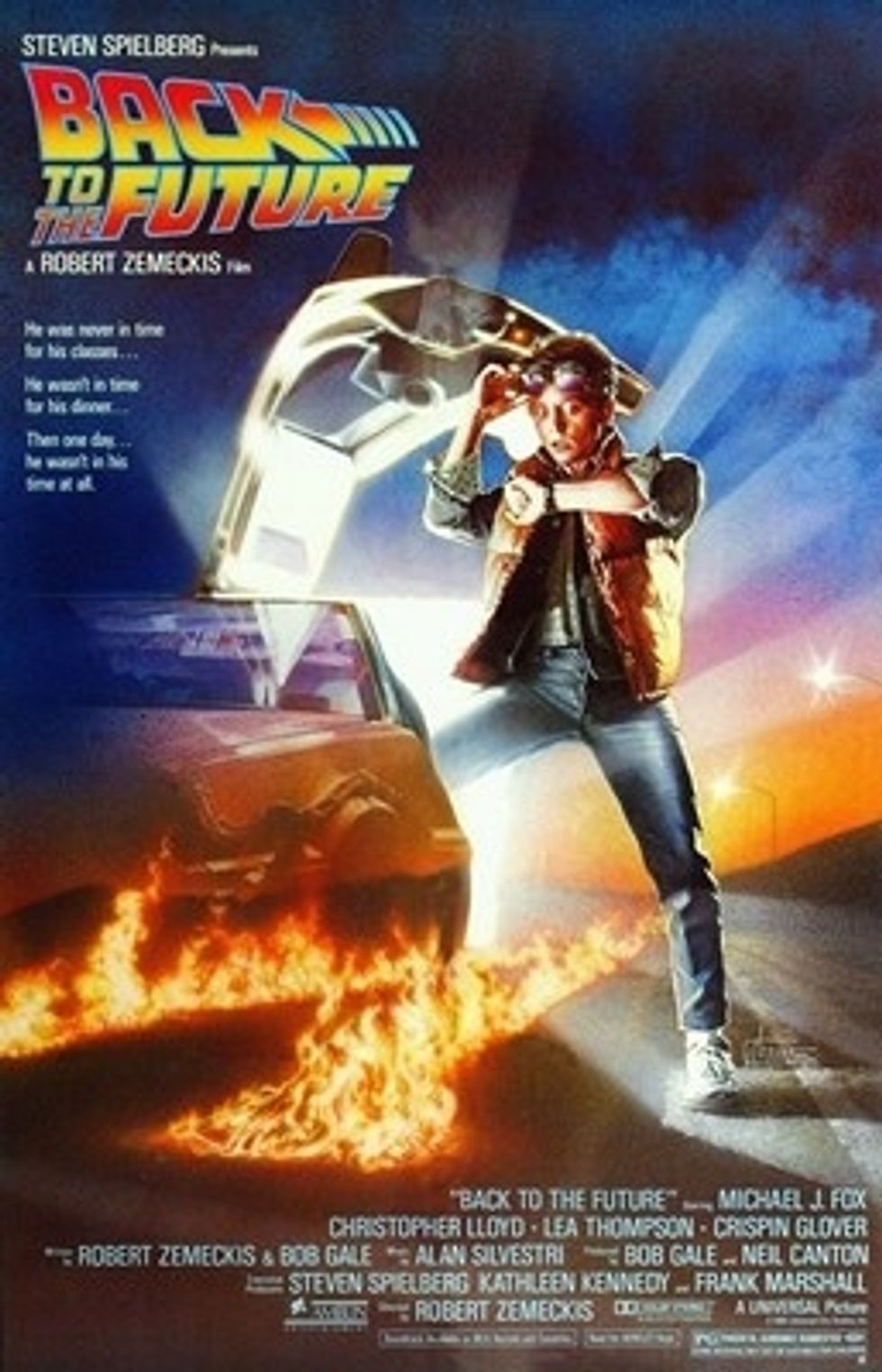
The original "Back to the Future", released over 30 years ago now, is generally regarded as one of the best science fiction films of all time, as well as one of the best films of the 80's. The story focuses on high school slacker Marty McFly, played by the energetic and talented Michael J. Fox, who is accidentally sent back in time from 1985 to 1955 when he hijacks a time machine built by his eccentric scientist friend Dr. Emmett L. Brown, played by Christopher Lloyd, and Marty's attempts to, with the help of 1955 Doc, to get back home. Spawning not one but two sequels, the first in 1989 seeing Marty go to the "future" of 2015 and the second in 1990 seeing Doc and Marty go back to 1885, the series is generally considered one of the best movie series to ever be produced. However, since the release of "Back to the Future: Part III" in 1990, very little in the way of "Back to the Future" has been made for consumers. There was "Back to the Future: The Ride" for several years at Universal Studios Orlando, but that has since been taken down, and a few comic books and video games, including one by TellTale Games, known for their "The Walking Dead" series of games, but that's about it.
For being one of the most beloved media franchises out there, it's somewhat surprising that we haven't gotten more from this series. The main reason is that Robert Zemeckis, who wrote the films, retained the production rights when he sold the script to Universal Studios, meaning he has the final say on whether or not any new "Back to the Future" things are made, and on the few occasions we know of he's been approached about doing a "Back to the Future: Part IV", he's turned it down. Not only that, but the actors from the films, much like the films themselves, have aged in those years. When the first movie came out, Michael J. Fox was 24 years old and Christopher Lloyd was 47. Now, Fox is 57 (and unfortunately suffers from Parkinson's Disease) and Lloyd is 79. On top of that, outside of nostalgia, fans may not be as willing to flock to the theaters to see a new "Back to the Future" film today as they would've been, say, 20 years ago. However, that doesn't mean a new one wouldn't do well, and considering Universal Pictures needs to mount some sort of resistance to Marvel, Pixar, Lucasfilm, and Disney, which are all actually the same company, a good bet like "Back to the Future" may just be what it needs.
4. "Citizen Kane" (1941)

What is there to say about "Citizen Kane" that hasn't already been said in the 77 years since its release? Another Rotten Tomatoes 100%-er, Orson Welles' magnum opus story about a newspaper tycoon-turned politician-turned social recluse is one of the most masterfully-told stories to ever grace the silver screen. Starring Welles himself as the titular Charles Foster Kane and Dorothy Comingore as leading lady Susan Alexander, the story is a touching one about humility, honor, and the benefits of a simple life as opposed to one of grandeur. It also served to poke jabs at the real-life newspaper tycoon William Randolph Hearst, who, in retaliation, ran a series of smear campaigns against the film, leading to it's failing to make back its budget in its initial cinematic run. Since then, however, the film has gained its seat in the pantheon of cinematic history as one of the best, if not the best, movie of all time.
While no writer, producer, cast, or crew could ever add onto the wonderful story Welles created all those years ago, they could attempt to update the story for the modern age and tell it yet again. Rather than attack a long-dead newspaper owner, they could make the script more poignant to today's contentious political landscape, as so many movies and TV shows tend to do these days. I wouldn't be in favor of this, or any remake of this masterpiece for that matter, but that doesn't mean it can't be good. In fact, with the right writer, director, and cast, this could very well live up to the legacy of the film it's based on.
5. "Mr. Smith Goes to Washington" (1939)
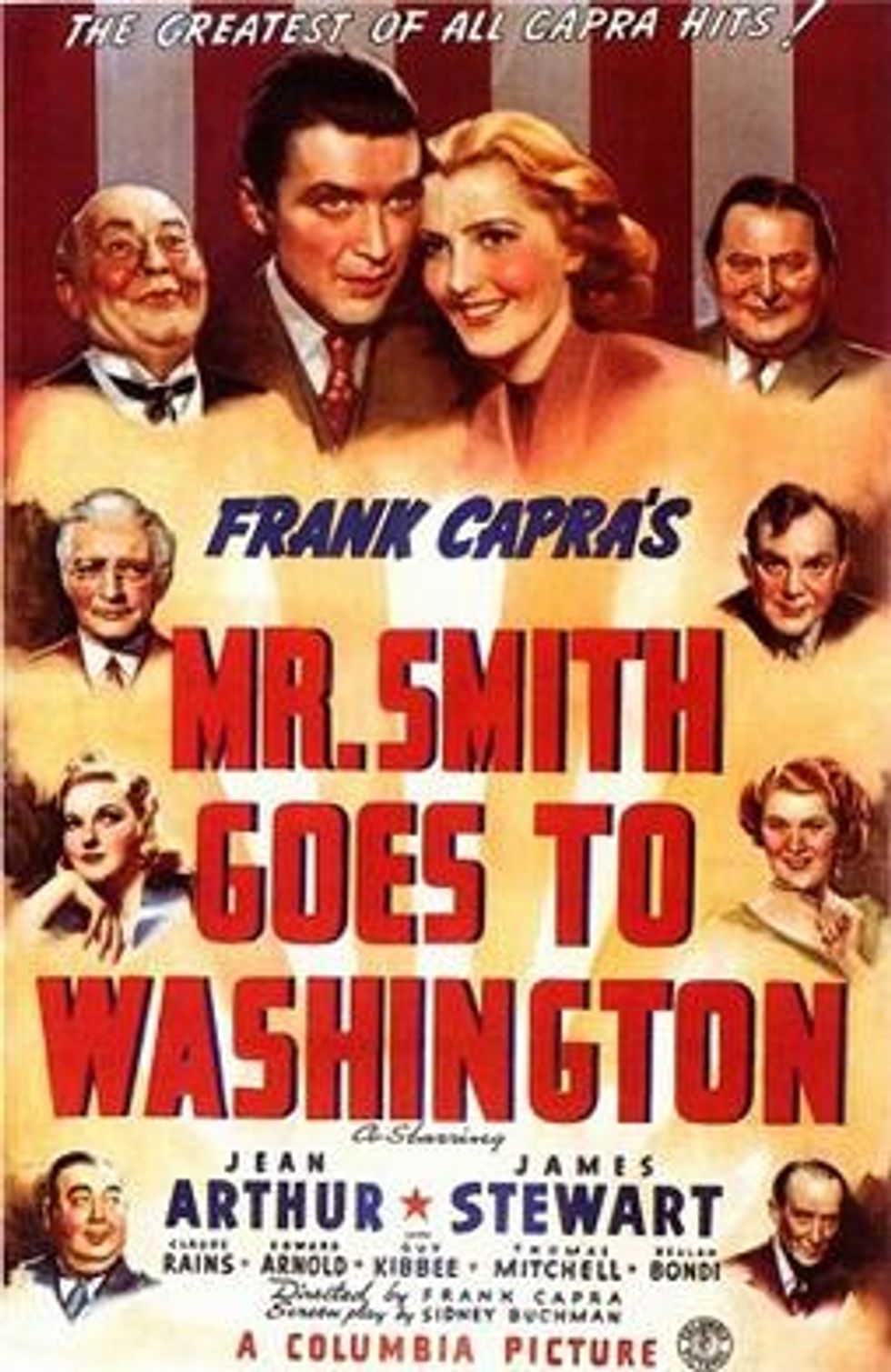
Directed by the legendary Frank Capra and featuring the legendary Jimmy Stewart in his one of his very first starring roles (and actually his second that year, alongside "It's a Wonderful Life", also directed by Capra), "Mr. Smith Goes to Washington" tells the story of a young Jefferson Smith who, following the death of his state's senator, is selected by the political machine (or group of corrupt politicians) to serve the state in the US Senate as he would be easy to manipulate. However, once he arrives, he begins to, inadvertently, interfere and derail the machine's corrupt plans, so they fake evidence that he's trying to manipulate the system to get himself rich. Using his willpower, the support of his friends, and the will to serve the people with the utmost loyalty and honor, Smith is able to sway the Senate after a 24 hour-long filibuster to stop himself from being expelled from the Senate and brings down the corrupt politicians.
While a seemingly concise story, I feel that this one has one of the ripest plots to be picked today, or, rather, picked up on. This is another one of those stories that I've spent a long time thinking about, so I have a lot of ideas on how I'd want this to go, the most significant of which is to make it a TV show sent in the modern-day starring Senator Jefferson Smith's grandson rather than Smith himself. Again, this one's a bit biased of a pick, since, as a political science major and lover of politics since a young age, I've loved this film for many years now. As with any political story, undertones focusing on the current political situation in this country would probably be present, both for the better and for the worse. It'll get people in the seats, that's for sure, and, if done well enough, would probably keep them coming back as well.
6. "Metropolis" (1927)
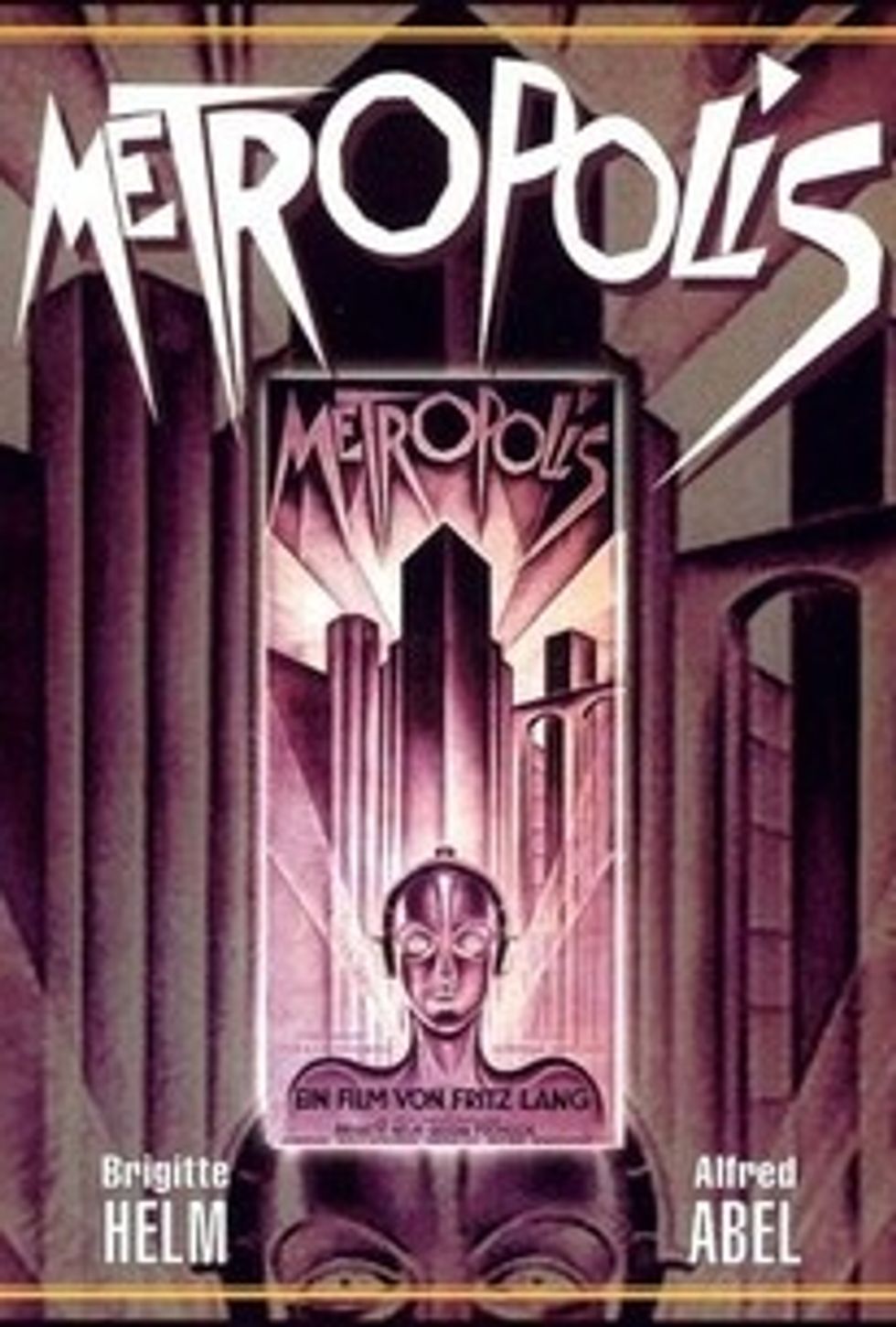
Now this one is definitely an obscure one. Released in 1927, "Metropolis", ranked #6 on Rotten Tomatoes All-Time Greatest Movies list, is a German, inter-war, science fiction film, and one of the earliest sci-fi movies at that. Based on a 1925 novel of the same name, the story focuses on the conflict between the working class and the ruling class, as well as between the workers and the machines built to replace them. A dystopian flick, it was part of the German expressionist movement that took place between the end of World War I and the rise of the Nazis in the early 1930's. Costing an estimated 5.3 million Reichsmarks, or about $72 million in today's dollars, the film only made about 75,000 Reichsmarks, or about 1.42% of its total budget. However, in the over 90 years since its release, the film has gained a massive cult following, being named as one of the best sci-fi and dystopian films ever produced.
It's story being public domain, getting the rights to the story isn't difficult. Neither is updating it, as so much of the film reflects the world it was made in, updating the visuals is about all that needs to be done in this flick. Considering the pedigree this movie carries, adapting it won't be a task taken lightly, meaning that this would be one remake that would, with too much doubt, be done right.
7. "12 Angry Men" (1957)

Yet another Rotten Tomatoes 100%, "Twelve Angry Men", also written as "12 Angry Men", tells the story of what goes on behind the closed door during a trial. The story focuses on the 12 jurors in a murder case that, on the surface, seems pretty open-and-shut, that is until one of the jurors fails to convict despite the other 11 voting guilty. Debate over what seems to be an obvious conclusion continues, and as it does the jurors slowly find flaws in the prosecution's story of what took place, and more and more of the uneasy jurors begin to sway to the other side. A wonderfully performed, shot, and written film, this was one of the first great legal drama films that so many others like "A Few Good Men" and TV shows like "Law and Order" would eventually attempt to emulate. Even content from other genres, ranging from "Spongebob Squarepants" to "Family Guy" have referenced or even had episodes devoted to "Twelve Angry Men".
To update it for the modern day would be simple enough. Add a few women to the jury, change the technology and references, and realize that it has the potential to be a poignant statement on race and the justice system in this country and you have a chance to create a modern classic.
8. "Dr. Strangelove or: How I Learned to Stop Worrying and Love the Bomb" (1964)
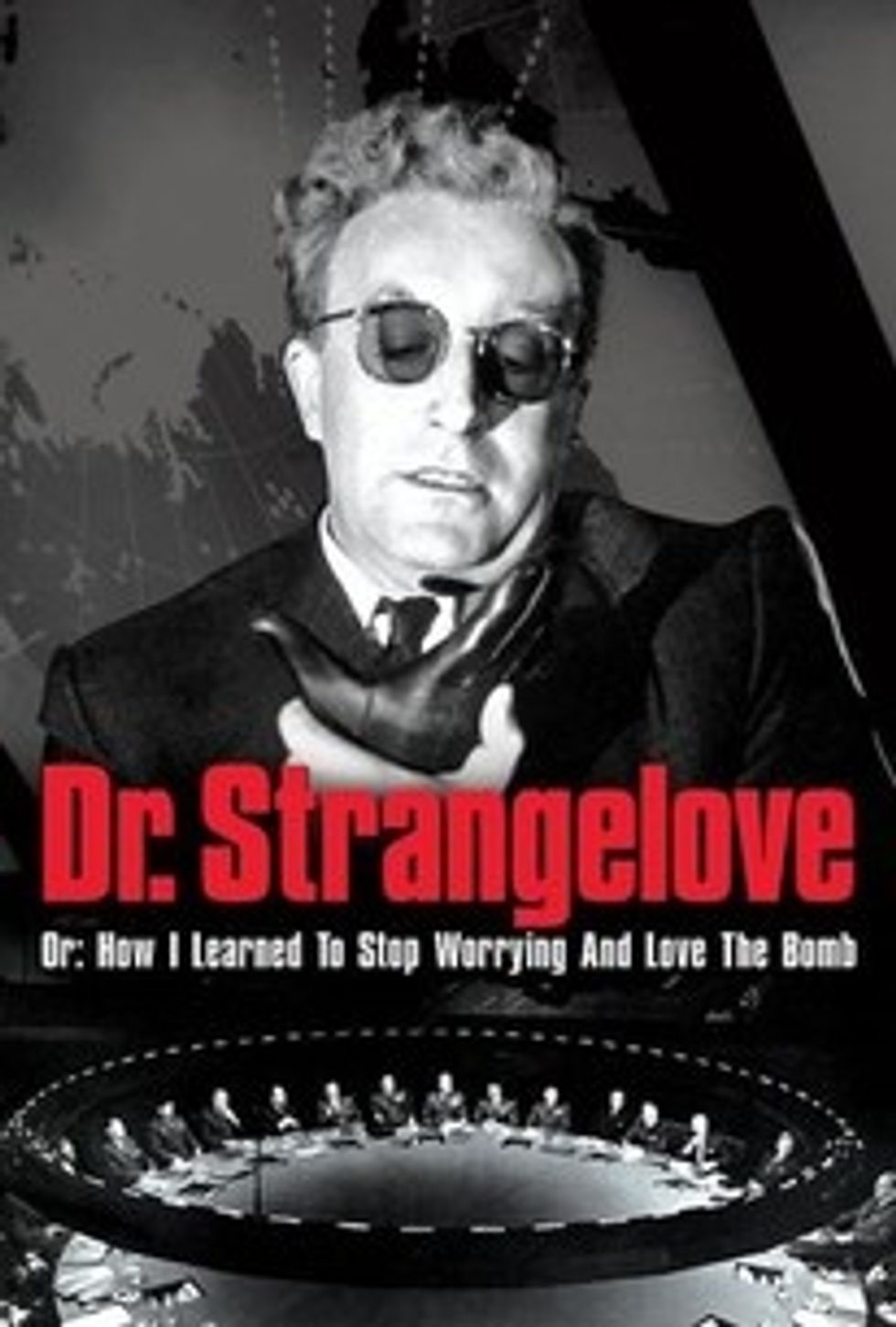
One of the...odder movies out there, "Dr. Strangelove" is one of the sickest, most twisted, darkest comedies out there. The work of legendary director Stanley Kubrick, well-known for his works including this, "2001: A Space Odyssey", and is rumored to have helped faked the Moon landing. This story, loosely (and I mean loosely) based on the 1958 novel Red Alert, features Peter Sellers as three different characters, all of which are significant characters, and is about a general in the US going rogue and ordering a nuclear strike on the Russians and the government's attempts to stop the strike and warn the Russians. Doesn't sound too funny, I know, but you need to watch it. It is one of the most hilarious films you'll see, not to mention it features James Earl Jones in his first-ever film role!
Now, unlike the previous entries, this could have any number of things to go along with it. It could have a film taking place on the Russian side of things (which is touched on but never seen in the film), a prequel showcasing how things got to the zany point they were at the start of the film, or a remake changing the film to be in our modern world.
9. "Spaceballs" (1987)
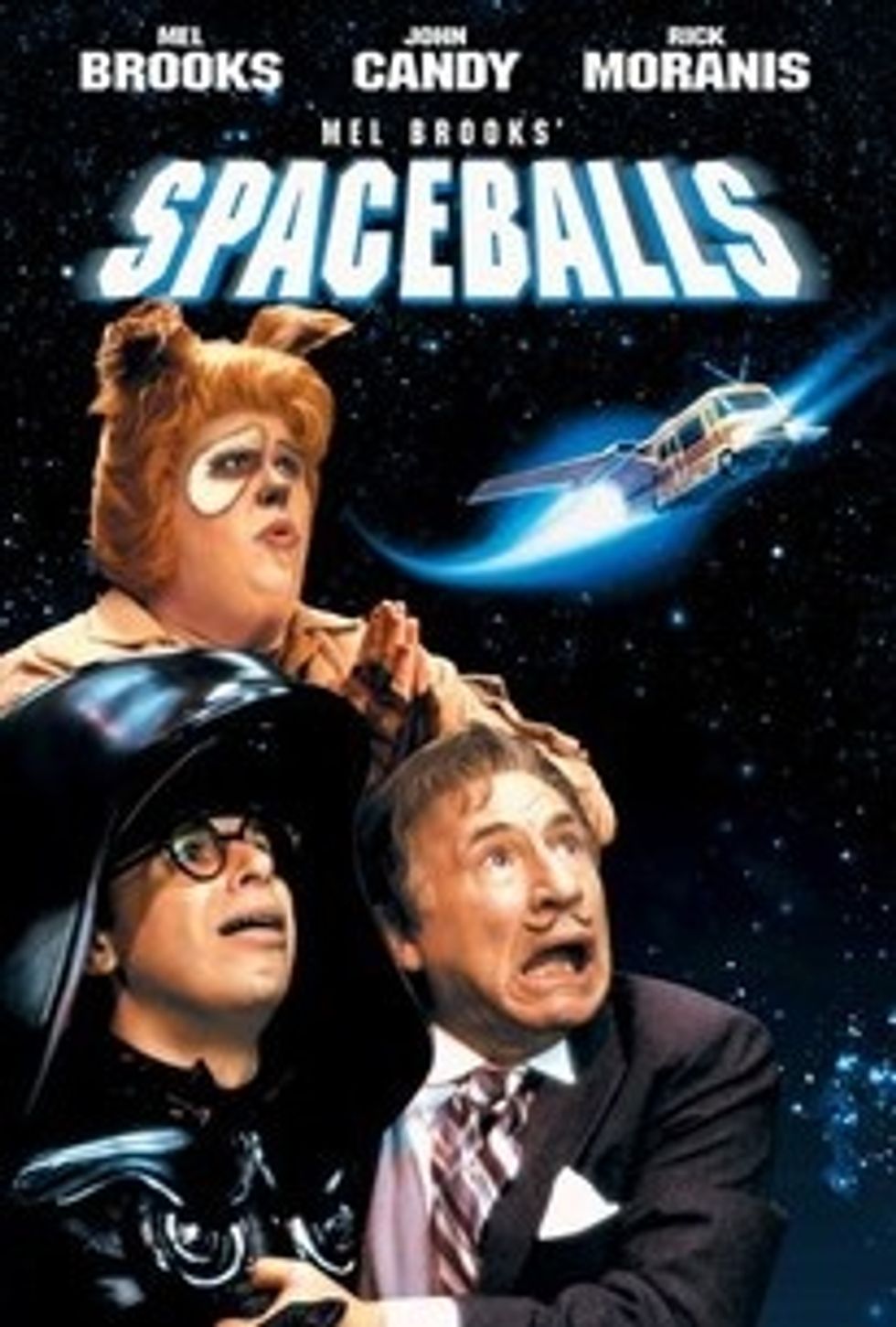
The classic Mel Brooks comedy that made fun of an entire genre, "Space Balls" is a funny, raunchy space comedy that pokes fun at everything from "Star Trek" to "Star Wars" to "Planet of the Apes". The story centers on Lone Star, a bounty hunter on the run from the criminal gang leader Pizza the Hutt, and his man-dog partner Barf as they are hired by the king of Druidia to find his daughter, who ran away from her wedding only to be captured by the villainous Planet Spaceballs so as to ransom Druidia for its air. After saving the princess and her robot companion, they encounter the old and wise Yogurt, who teaches Lone Star the way of the Schwartz, a mystical power that allows him to stand up to the main antagonist, Dark Helmet, at the climax of the film.
While this may seem like a very open-and-shut story, there is plenty of room for the story to be continued, and with Mel Brooks returning to the roles of Spaceballs President Scrooge and Yogurt the Wise and Powerful (or just plain Yogurt), this sequel, which was teased in the film as "Spaceballs 2: The Quest for More Money", may just be the movie no one asked for but everyone wanted.
10. "To Kill a Mockingbird" (1962)
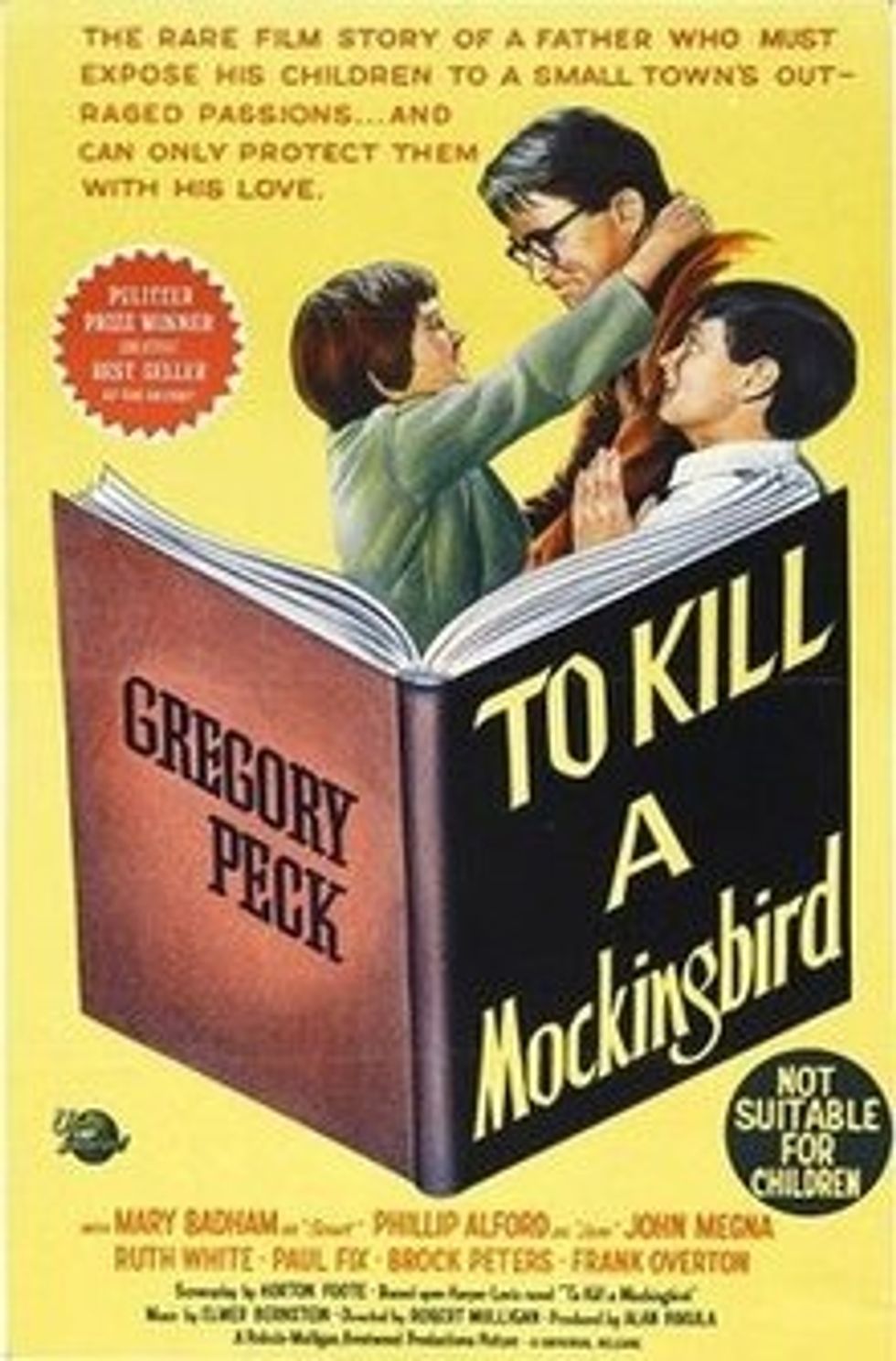
"To Kill a Mockingbird" is one of the quintessential American stories ever produced and was quite possibly the best American novel published in the 20th Century. The story of white lawyer Atticus Finch defending a black man in Jim Crow Alabama, as told by Finch's young daughter, is a harrowing tale that, all of these years later, is just as poignant as the day it was published. Gregory Peck's portrayal of the just-minded man surrounded by others who wouldn't think twice of committing a villainous act should they be in Finch's position is one for the ages and won't soon be forgotten.
Now, I was torn about including this one for a few very key reasons. First off, Gregory Peck is unfortunately no longer around to give us an encore performance to one of the greatest examples of acting on the silver screen, and this is not a role you simply just recast. Also, while the material for a sequel is already present for adaptation, it is highly controversial. The original manuscript for To Kill a Mockingbird wasn't exclusively the story we got. Rather, it was part of a larger story about Finch's daughter, Scout, as she talked about growing up in the rural South, moving north to the city, recounting the story we did get, and returning home to find out some less-than-savory things about her father. The original manuscript, titled Go Set a Watchman was thought lost to time until the author of To Kill a Mockingbird lost her sister, who left her the contents of her safety deposit box, to old age. Upon going through the contents of the box, the lawyers of the two sisters rediscovered the lost manuscript and, having reportedly received the Harper Lee, the author's, approval, they published the previously unreleased portions of the manuscript as Go Set a Watchman. Those unsavory details about one of the greatest American literary characters? Turns out he was an extreme racist the whole time, he just was doing the right thing under the law in the case. Now, naturally, this would be quite outrageous, as it was when the novel first came out. To think of Gregory Peck's Atticus Finch as a racist would be like killing off one of your idols, which was the original intent of that character trait's inclusion. However, touching something like that is dangerous, especially when I point out that my original justification to my friends when this first came out was that only novel Atticus was racist, not movie Atticus.
With all of that said, I think with the current political landscape, Go Set a Watchman would be a very poignant film. The idea of your idols and loved ones not being the perfect people or even the best people to look up to, especially in the realm of race and justice, is a plot that many people in today's society can relate to. It would, without a doubt, be one of the most controversial films of the year, but it would also be one of the best.
11. Honorable Mentions
"The Wonderful Wizard of Oz" (1939)- a popular choice for many but it has already been done so many times ("Oz the Great and Powerful;" "Wicked;" "The Wiz;" "The Muppets Wizard of Oz;" etc.)
"The Godfather" (1972)- complete story that shouldn't be touched at all
"Casablanca" (1942)- past is thoroughly touched on in movie, future is supposed to be ambiguous
"2001: A Space Odyssey" (1968)- while a series of novels were made as sequels to the original novel, the changes in technology would make a sequel to the film feel out of place and unnatural
Etc.
So, that just about does it. Did I miss out on an obvious choice, or did I include one on the list that had no right being there? Whatever you think, hopefully the film industry continues to bring us great films to love for decades to come. In the meantime, let's wait around for "Avengers 4" and "Star Wars Episode IX." Until then, enjoy the movies!
















